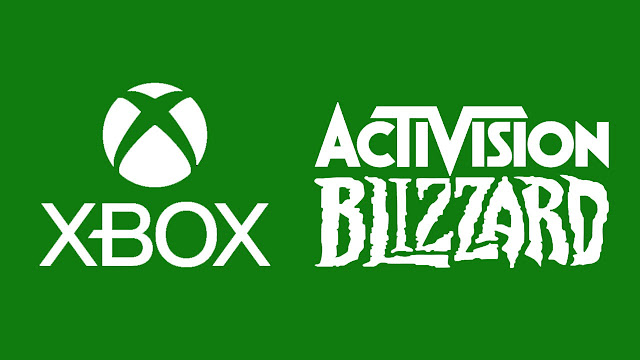Activision Blizzard: US seeks to block Microsoft's $69bn acquisition
The US has filed a lawsuit over Xbox maker Microsoft to prevent it from acquiring the company that makes popular video game franchises, most notably Call of Duty.
Regulators raised competition concerns, claiming that they were concerned that if the acquisition went through, Activision Blizzard's games would no longer be available on gaming consoles made by other companies apart from Microsoft.
The Activision acquisition was projected to be Microsoft's largest ever. The business vowed to push to get the $69 billion (£56 billion) deal completed.
According to Microsoft President Brad Smith, the corporation has "complete confidence in our argument" and welcomed the chance to argue its stance in court.
One of the most well-known court battles resulting from US President Joe Biden's promise to take a hard-line approach against monopolies is the complaint against Microsoft.
Other nations, notably the UK, had already expressed concern over the proposed agreement.
Some of the most well-known video games in the world are produced under Activision Blizzard, including the Call of Duty franchise, World of Warcraft, Overwatch, and Candy Crush.
Activision is one of a select group of renowned video game publishers that creates high-calibre games for several platforms, as per the Federal Trade Commission, the US consumer protection agency that launched the complaint.
The deal would give Microsoft "both the means and motive to harm competition" by manipulating pricing, making games worse on its competitors' video game consoles, "or withholding content from competitors entirely, resulting in harm to consumers," the agency said in a press release.
In a message to employees published on the Activision Blizzard website, CEO Bobby Kotick remarked, "This sounds alarming, so I want to reinforce my confidence that this deal will close. The allegation that this deal is anti-competitive doesn't align with the facts, and we believe we'll win this challenge."
Keywords from this article:
Regulators - they are responsible for investigating and making sure that the services that are being provided in a certain industry are being met and delivered efficiently.
Acquisition - is a business transaction where one company purchases and gains control over another company.
Monopolies – a situation in the economy where a single seller is selling a unique product. The seller would face no competition as they would be the sole seller, and there are no close substitutes in the market, thus giving them market power and the ability to dictate the price level of goods and services.


Comments
Post a Comment